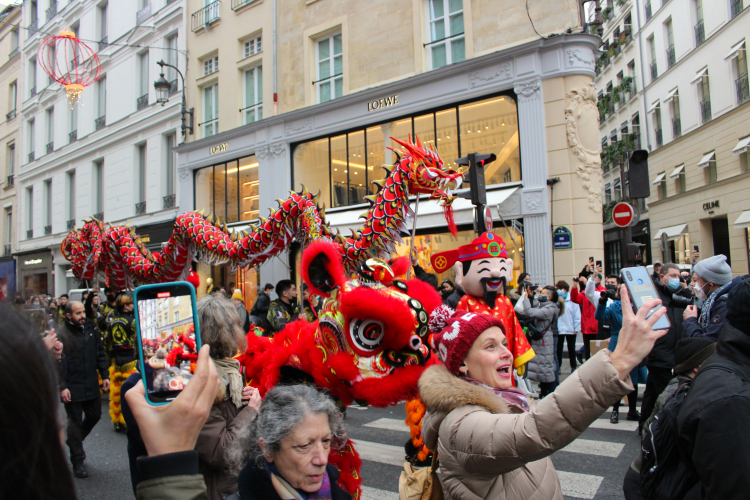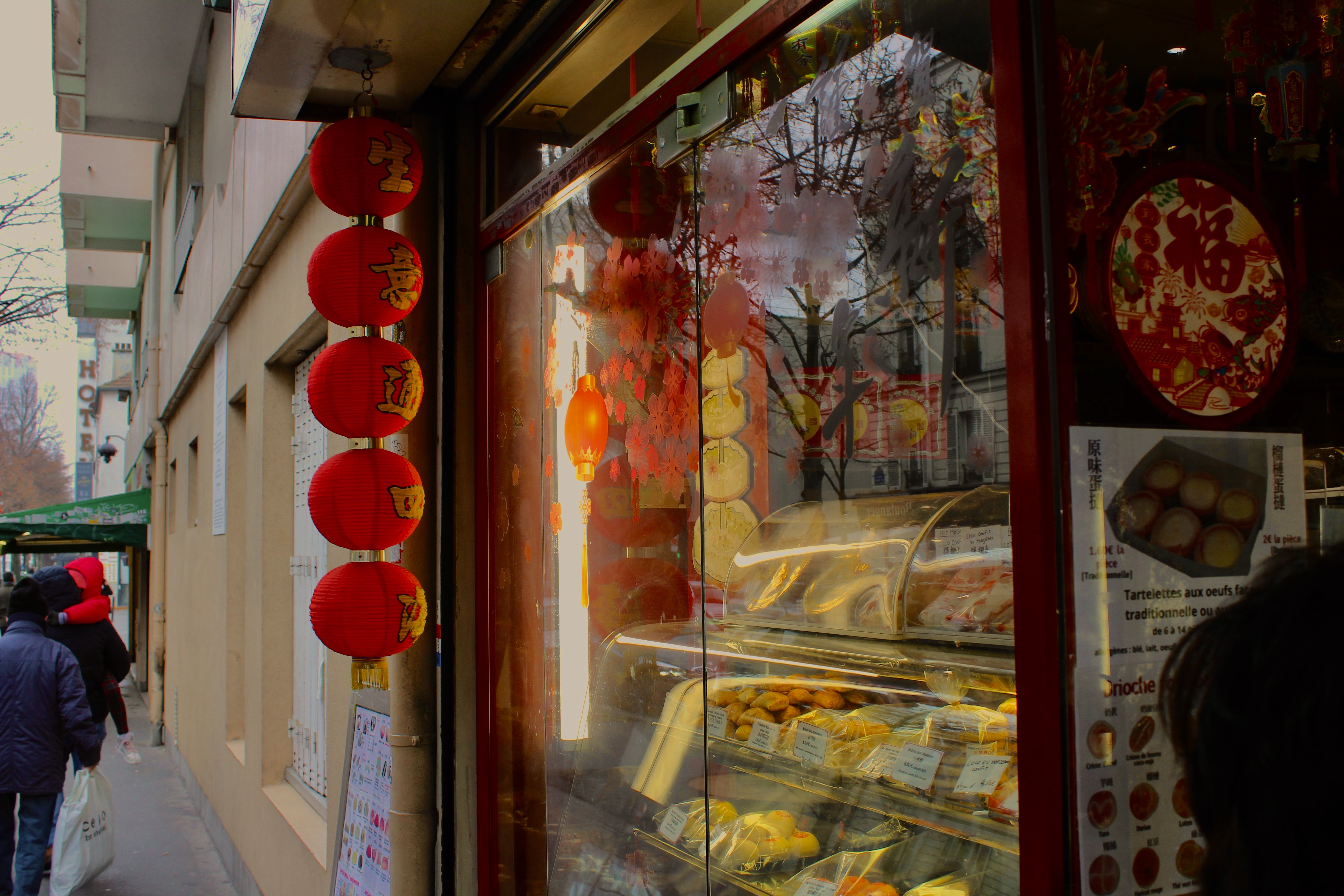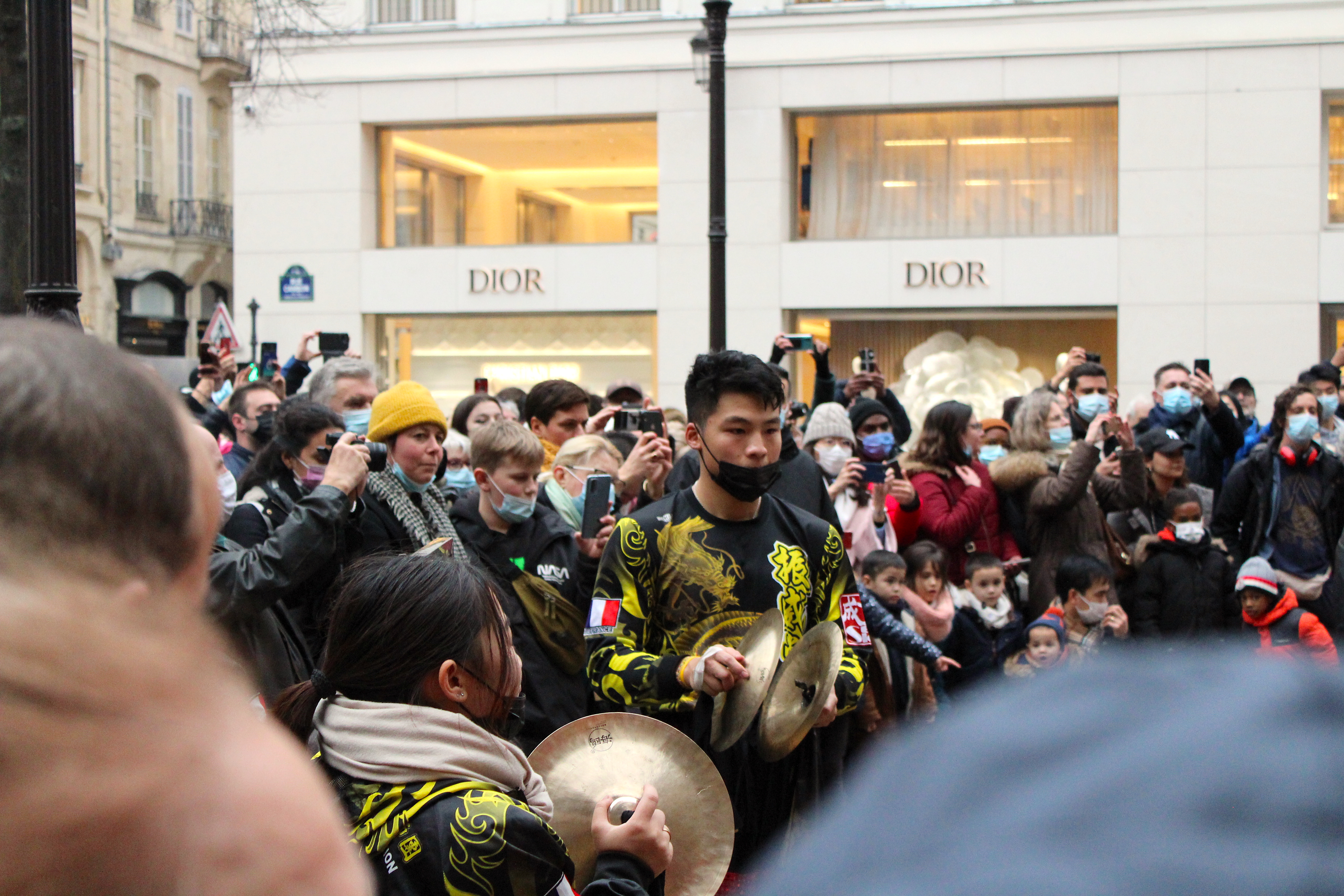L'Année du Tigre in Paris

On Feb. 1, dancers from the Paris Lion Sport Association ushered in the Lunar New Year on the streets of one of Paris’ most luxurious neighborhoods surrounded by crowds of tourists and locals alike. Holding serpentine dragon puppets and dressed in bright lion costumes, the dancers paraded down Rue du Faubourg Saint-Honoré, performing traditional dragon and lion dances accompanied by drums and cymbals to bring good luck and prosperity in the new year.
One month after the Gregorian calendar declared a new year, millions around the world celebrated the Lunar New Year on Feb. 1. The festival, known to many as Chinese New Year but celebrated in many Asian countries, begins as the first new moon of the lunar calendar rises. Fireworks, special food and parties last for 15 days until the first full moon rises and the holiday ends with the Lantern Festival.
Though France follows the Gregorian calendar, celebrations for the Lunar New Year can still be found in Paris. Many parades and parties were canceled due to high rates of COVID-19 cases last month, but various Paris neighborhoods hosted smaller events, including the dances performed by the Paris Lion Sport Association.
The Marais, the Belleville district and Paris’ Quartier Asiatique in the 13th arrondissement celebrated the holiday in Parisian style, with restaurants offering traditional New Year’s dishes, galleries hosting art that celebrates Asian culture and brands advertising with 2022’s Chinese zodiac symbol: the tiger. A symbol of courage and strength, the animal is used to define the year and predict the year’s outcomes, as well as bring good luck to those who wear images of it on their clothing.
Lunar New Year decorations outside Pâtisserie de Choisy in the 13th arrondisement. Photo credit: Sarah CroninFor Tabitha Wan, USC first year and San Francisco native, the holiday meant seeing family and enjoying time with them. “We’d get my extended family over or go to a big restaurant and do the whole eight dish meal with everyone.” Wan’s parents immigrated to the US from Hong Kong as children and have continued to celebrate the holiday, passing traditions down to their own children. “It’s always a big family holiday, just eating good food.”
Despite millions of Asian-Americans and French-Asians celebrating the Lunar New Year, it is still not considered a national holiday in either the U.S. or France. But some American lawmakers hope to change that.
Just a few days before this Lunar New Year, U.S. representative for New York’s 6th district, Grace Meng, proposed the festival to become a federally recognized holiday, stating: “My bill, coupled with my resolution, would demonstrate that the holiday celebrated by millions is also valued by their government.” Backed by 44 cosponsors she hopes to make the celebration the United States 12th national holiday.
We rang in the #LunarNewYear this week, now I'm fighting to make it a federal holiday!
Let's send a strong message to Asian Americans that they are valued -- and to those who aren’t Asian American that this tradition and culture is part of America too. https://t.co/i4u7YShswx— Grace Meng (@Grace4NY) February 3, 2022
Wan said she agrees that the holiday should be recognized, as not having the day off can limit those who celebrate it. "Schools always tried to say something about [Lunar New Year] but we never got school off. Everyone else got the Gregorian New Year off, so for us it was always just a nighttime celebration," said Wan.
No moves have been made to make Lunar New Year a national holiday in France yet.
Musicians from the Paris Lion Sport Association accompany the dance with cymbals and drums. Photo credit: Sarah Cronin For events and more information on Lunar New Year in Paris, check out the 13th arrondisement's town hall page or Paris' Office of Tourism guide.








